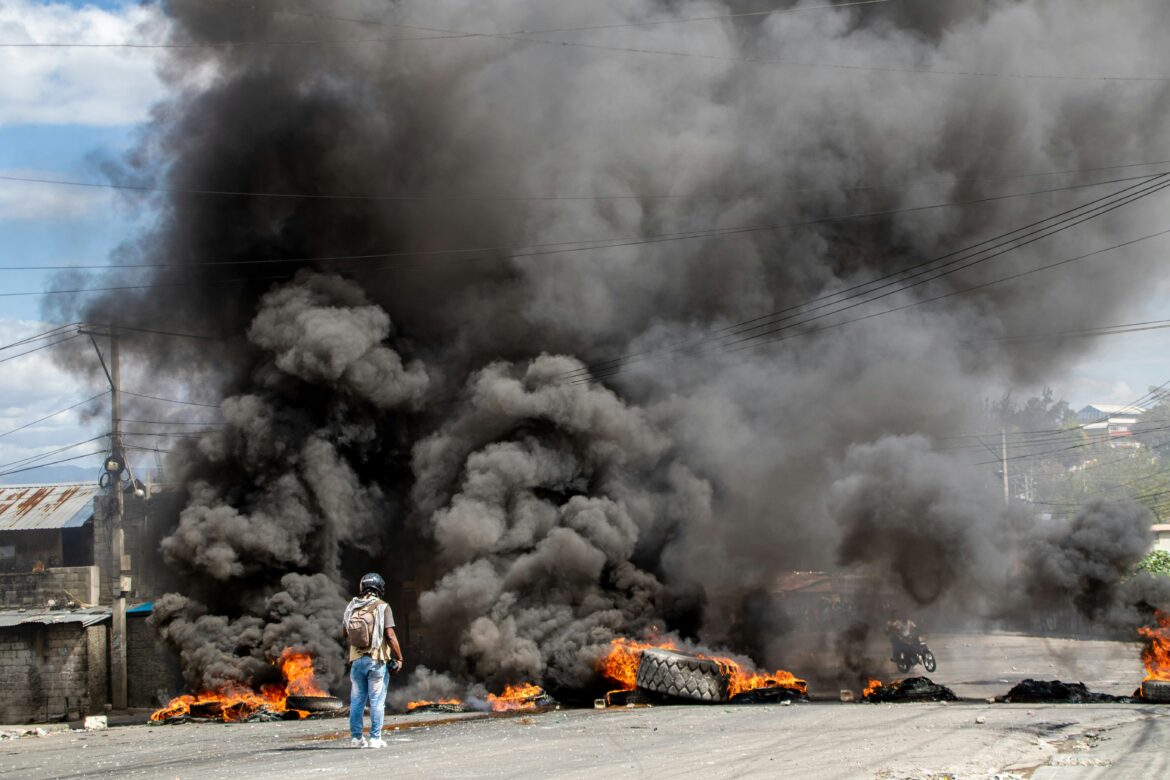A proposed solution to Haiti’s armed gang crisis is underway, but how effective will foreign intervention be? Countries such as Kenya and the United States are stepping up to help Haiti crackdown on the armed groups that have taken control of an estimated 80 percent of the nation’s capital. This effort is part of the multinational security support mission for Haiti authorized by the UN Security Council in May of this year.
Historical Context
Historically, armed groups have played a major role in Haitian politics. During the 1950s, François Duvalier established the “Tonton Macoute,” a paramilitary force to coerce opposition and uphold the dictatorship that would last for 29 years. These groups were outlawed in 1995 by President Aristide and replaced by self-defence groups known as “baz”. The “baz” groups supported prevalent leaders and controlled parts of the capital city, Port-au-Prince. However, other armed groups such as the Front for the Advancement and Progress of Haiti (FRAPH) and the “chimères” affiliated with Mr. Aristide, also arose.
Foreign involvement in Haiti from the international community is not a new phenomenon. The last major foreign intervention in Haiti took place from 2004 to 2017 when the United Nations Stabilization Mission in Haiti (MINUSTAH) was deployed. MINUSTAH aimed to bolster Haiti’s internal security capabilities. However, the operation failed to attain the desired outcome due to insufficient resources, a lack of coordination between donors and national leaders, corruption, and the extensive damage caused by the 2010 earthquake, which limited reform initiatives.
The assassination of President Jovenel Moïse on July 7, 2021, worsened widespread violence by armed groups. While it remains unclear who ordered his assassination, the Colombian mercenaries responsible for shooting the president in his home, as well as several suspects in the have been arrested. The death of President Moïse created a power vacuum that made it easier for armed gangs to gain influence and seize territory. This, combined with several delays in holding legislative and presidential elections, weakened state institutions.
Recent Developments
Experts suggest that the presence of gangs in Haiti is increasingly driven by political motivations. The historic relationship between paramilitary forces, government institutions, and politicians has solidified gang violence as a fixture in Haiti’s political landscape. As a result, several group leaders seek to maintain or expand their political power through criminal activity. Contrastingly, paramilitary members are often vulnerable individuals, such as children, who are either threatened or compelled to join as a means of supporting their families.
One of the newest federations of paramilitaries is the G9 Family and Allies, founded by former police officer Jimmy Cherizier, also known as “Barbecue.” Cherizier pledged that the coalition would bring peace to Port-au-Prince. However, the armed group continues to expand their influence and finances through extortion including kidnappings for ransom, charging “protection fees” for local businesses, and taking control of public services such as electricity.
In early March, the G9 Family and Allies ousted Ariel Henry, who had taken leadership after President Moïse’s death. The G9 coordinated an attack that prevented President Henry from entering the country. The next month, President Henry agreed to resign as per the request of several countries and the G9 Family.
International Response
The multinational security support mission for Haiti began in May, led by Kenya in collaboration with the Haitian National Police. The main objective of the mission is to reduce the presence of armed gangs and ensure democratic elections. Halting the activity of armed gangs in Haiti could help address the ongoing humanitarian crisis faced by the nation.
According to the UN, 2,500 people, including 82 children, were injured or killed within the first quarter of the year due to gang violence. Almost 50% of the casualties were shot during clashes between armed groups and law enforcement or in attacks on their neighbourhoods. During that same time frame, at least 438 individuals were kidnapped for ransom. Moreover, approximately 362,000 individuals, half of whom are children, were forced to escape their residences. Gender-based sexual violence has also been increasing, and many students have been unable to attend school as a result of pervasive violence.
On June 25, 200 Kenyan police officers were deployed to Haiti. This initiative comes amid allegations of human rights abuses by the Kenyan security forces, which has led many to doubt the efficacy of the initiative. Kenyan police were accused of opening fire on protestors attempting to storm the parliament on June 25. According to reports, at least 13 people were killed with 12 more injured. This, in addition to years of allegations of police abuses of power, including extrajudicial killings, raises concerns that a Kenyan police presence in Haiti may only lead to more unnecessary violence.
Haitian Prime Minister Garry Conille, appointed in May by the Transitional Presidential Council expressed his mixed thoughts about the intervention, underlining the need for cultural sensitivity and the preservation of sovereignty. To intervene effectively stakeholders should understand the Haitian perspective rooted in historical violence and difficult socio-economic conditions. Moreover, an internationally imposed solution should preserve sovereignty by not compromising the role of the Haitian government as the primary decision-maker.
The main activity of Kenyan police in Haiti has been conducting street patrols alongside Haitian police. Despite these efforts, the gangs, who cautioned they would resist deployment, have continued to commit murders, raid police stations, and set homes on fire. For strategic reasons, specific methods of reducing gang activity have not been disclosed. However, additional measures are planned, potentially increasing the operation to include 2,500 members. Multiple countries from Africa, the Caribbean, and Asia have pledged officers, but there is no clear timeline for deployment. As of now, international contributors have donated $21 million to the mission, but Kenyan officials have stated that approximately $600 million is required for the mission’s success.
The most recent development has been the recapturing of a Haitian hospital. After months of violent attacks from armed gangs, the General Hospital in Port-au-Prince was taken back on July 7, 2024 by the police force. Furthermore, on July 12, 2024 the UN adopted a resolution extending the mandate of the United Nations Integrated Office in Haiti (BINUH). The unanimously adopted resolution condemned the increasing gang violence in the country, urging Haitian authorities to create a Provisional Electoral Council and agree on a timely, lasting, and widely accepted plan for elections. The resolution also called for collaboration among member states to stop illegal arms trafficking and diversion by conducting inspections on cargo to Haiti and sharing urgent information to locate and counter illicit trafficking supply chains and sources.
Challenges Ahead
The international community has taken significant measures to help Haiti overcome gang violence and build a sustainable and secure state. Preventing any further illicit arms trade and establishing a timeline for new elections can be important steps to dismantle armed groups. Additionally, the recapturing of important public institutions may represent the first of many victories contributing to a safer environment.
Foreign intervention does not have to be a broken promise. Long-term success is possible if the pitfalls of past attempts, such as MINUSTAH, are avoided and if the Haitian people remain at the centre of security policies. The perspective of all Haitians must be taken into account, not just leaders, but youth, impoverished individuals, families, and those involved directly in violence. Possible security policy approaches could seek to prioritize community consultation to ensure that interventions align with the needs and values of Haitian locals. Success depends on engaging with and trusting the people of Haiti, as they are the true experts on the crisis they are currently experiencing.
Edited by Mia Alexander

Theresa Decius-Timothée is in her fourth and final year at McGill University, currently pursuing a B.A. in Honours Political Science and a minor in International Development Studies. She is passionate about international relations, migration, and comparative politics in Canada and the Global South, with a focus on the Caribbean and Latin America.

